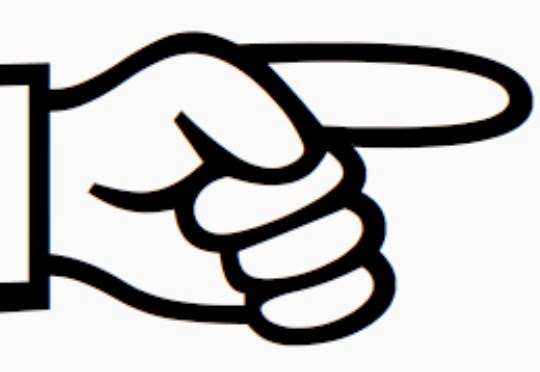“Not finance. Not strategy. Not technology. It is
teamwork that remains the ultimate competitive advantage, both because it is so
powerful and so rare.”
 |
| http://goo.gl/LLzV3 |
The Staff
Jeff Shanley - former CEO, now head of
business development, a natural networker who was effective at raising money
and recruiting talent, but management was a different story.
Michele “Mikey” Bebe - head of
marketing, known as a brand building genius, but the least popular person on
the Decision Tech team.
Martin Gilmore - head of engineering
and the designer of the Decision Tech flagship product. His lack of engagement
had become an irritation to the others on the team.
Jeff Rollins (JR) - a prototypical
sales person who rarely followed through on commitments.
Carlos Amador - a very engaged,
thoughtful contributor. Though his customer support role was not “fully
developed,” he took responsibility for product quality.
Jan Mersino - as CFO, she was a key
player at DecisionTech - a company with plans to go public.
Nick Farrell - his undefined role
didn’t match his impressive title - COO. Given the company’s slow start, he had
little meaningful day to day work. He saw himself as the only executive on the
team with the ability to take over the CEO role.
Part 1 -
Underachievement
-
What were the main weaknesses that Kathryn immediately noticed with her new team? How would you describe a typical meeting at
DecisionTech before Kathryn’s arrival?
-
What are the characteristics and qualities of a “good” and effective meeting? How can we make sure we have “good” and
effective meetings here at our school?
-
Can you associate yourself or somebody you know with any of the characters
presented thus far in the story?
Part 2 - Lighting the
Fire
-
Pg. 30 - Email versus face-face conversation - when is one okay and not the
other? Are you guilty of this?
-
Pg. 44 - “Great teams do not hold back with one another; they are unafraid to
air their dirty laundry. They admit their mistakes, their weaknesses, and their
concerns without fear of reprisal?” How
do we create an environment where you can voice your concern without fear of
reprisal?
-
Pg. 65 - “It sounds like your strength and weakness are rooted in the same
things.” Do you agree with this statement,
and if so, how can we use this information to our advantage?
-
Pg. 79 - Revenue, expenses, new customer acquisition, current customer
satisfaction, employee retention, market awareness, product quality were listed
as the team’s “scoreboard.” Is this applicable
to education? How often should we check
the “scoreboard?” Daily, monthly,
biannually, annually……?
-
Pg. 81 - “Your department cannot be doing well because the company is failing
and if the company is failing then we are all failing and there is no way that
we can justify the performance of our own department.” Is this true in education? Is this true at our school?
-
Pg. 84 - “Could you start saying us and we instead of you?”
- Pg. 92 - “It’s the lack of conflict that’s a problem.” Do we have conflict in our staff
meetings? PLC?
- Pg. 95 - “They just need to be heard, and to know that
their input was considered and responded to.” Are your opinions and ideas heard? How do we establish an open arena to discuss
our ideas at our school?
Part 3 - Heavy Lifting
- Pg. 137 - “When a company (school) has a collection of
good managers (teachers) who don’t act like a team, it can create a dilemma for
them, and for the company (school).” Do
we have this at our school? In your department?
- Pg. 153-159 - What did you think about Mikey’s
departure from DecisionTech? How do we
deal with somebody who is obviously good at their job, but detracts from the
overall effectiveness of the team?
Part 4 - Traction
- Pg. 175 - At one of the last off-site visits Nick
proclaimed that the biggest issue that needed to be addressed was the avoidance
of accountability, which ultimately leads to low standards. How do we prevent avoidance of accountability
at our school? Within our departments? Within our classrooms?
- How can we hold our colleagues more accountable without
creating conflict? Is it our job to hold
our colleagues accountable? If we are
creating conflict for the betterment of the school is the conflict justified?
- What is your reaction to the idea that the larger the
unit, the smaller the leadership team needs to be? Do we have small leadership teams at our school? Are these small leadership teams
more effective than one overlapping leadership team? Why or why not and how?
 |
| http://goo.gl/K28DK |
- Do you see yourself as any of the characters presented
in this book? Can you still contribute
to the success of your team even if you posses less than stellar team
qualities?
- What specific skills and strengths did Kathryn possess in
developing the leadership team at DecisionTech?
- How do we develop the skills and strengths that Kathryn
demonstrated for her team?……applicable to schools?
- How and why does a book like The Five Dysfunctions of a Team continue to be on the best
seller-list after 7 years of being published?
- What were your key take away points from this book and
why/how are they significant in your life or work?





































